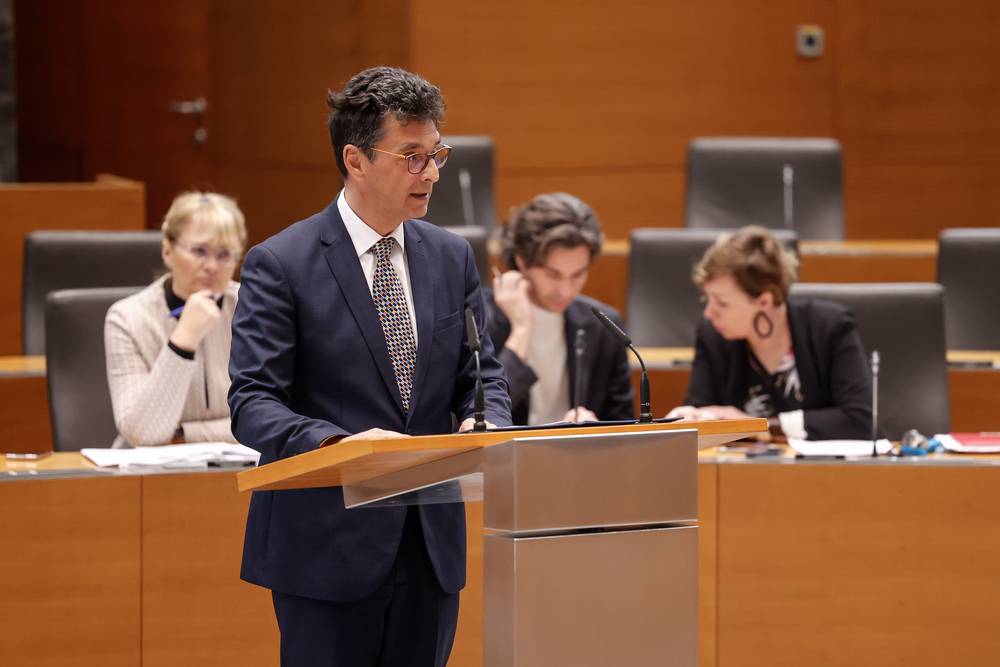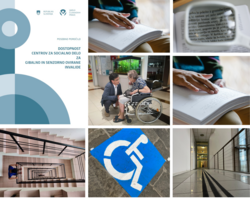On 23 February 2023, Human Rights Ombudsman Peter Svetina presented the findings from the Special Report of the Human Rights Ombudsman about the Accessibility of Centres for Social Work for People with Movement and Sensory Impairments at a plenary session of the National Assembly of the Republic of Slovenia. The Human Rights Ombudsman of the Republic of Slovenia (Ombudsman) decided to make a special report based on anonymous complaints from users of centres for social work (CSW). The state of accessibility of CSWs for people with movement and sensory impairments was checked in all 16 regional centres for social work or in the total of 63 CSW units across Slovenia. In 2021, an inquiry was first made about the accessibility for people with movement impairments, while in January 2022 the inquiry was made with the same addressees about selected aspects of accessibility for people with sensory impairments. It was found that the situation is not optimal, it is even critical in some cases, which Ombudsman Svetina believes to be unacceptable.
“We found that physical accessibility for people with disabilities was not arranged at three quarters of units of centres for social work. Eighteen units of centres for social work, for example, did not have toilets accessible to people with disabilities. Hence, they directed people with disabilities to use toilets at a nearby petrol station or at a healthcare centre 170 metres away. Such a state is unacceptable and points to the indifference of the state as well as of the management of individual units of centres for social work. The determined situation about accessibility from the perspective of people with sensory impairments is even worse. At the time of the inquiry, relief signs and symbols and signs in Braille writing were not provided by any of the units of the centres for social work. Furthermore, none of the centres for social work in the country had displays with written information or video players with videos including important information in sign language and with subtitles. There is no possibility to install a hearing loop at any of the Slovenian centres for social work,” Ombudsman Svetina summarised some of the special report findings for members of parliament. He also offered a few examples of replies by individual CSW units to the Ombudsman’s inquiries, including the answer from the Kamnik unit of CSW Osrednja Slovenija - vzhod. “When we asked: 'Is the access from the entrance to the premises of the unit clearly marked and does it offer unhindered access for people with sensory impairments?', the answer was: 'There is a board with an inscription. Can the blind see it? I think not.' I give you this answer as an example of how indecent and demeaning is the attitude displayed towards people with disabilities as well as the institution of the Ombudsman,” adds Svetina.
He also said that with the situation we are witnessing, people with disabilities and people with sensory and movement impairments who are thus even more vulnerable are being pushed to the margins of society. And all that a decade after the adoption of the Equalisation of Opportunities for Persons with Disabilities Act, which stipulates the elimination of architectonic obstacles by 2025. Therefore, we only have two years remaining to eliminate these obstacles,” Svetina stresses critically. “Today we are two years before the deadline and after almost 15 years since the implementation of the Convention on the Rights of Persons with Disabilities many things in this field remain unregulated. In these two years, the state and municipalities will have to do a lot of work,” emphasises Svetina and adds that based on the first Ombudsman’s inquiries, some of the units of CSWs immediately eliminated accessibility shortcomings. In his estimate, this confirms that sometimes important changes at the centres can occur simply with the engagement of their directors; on the other hand, it also raises the question of why they had to be warned about that and lack the feeling for it themselves.
In the Ombudsman’s belief, the reasons for the unacceptable state are not always the consequence of the actions of others in the system or a lack of financial means, hence he does not agree with such and other explanations about high costs and significant financial strains. “If shopping centres, banks, and other buildings can adjust their premises to people with disabilities, this is all the more imperative for the state. The installation of a hearing loop, tactile signs, and information in Braille writing do not present financial costs so high that the state could not afford them. However, as a developed and rich state, Slovenia is obliged to do so,” critically says the Ombudsman. Furthermore, the Ombudsman does not accept the statements of individual SCW representatives who claim that the premises they operate in are rented and that everything regarding accessibility depends on the good will of the owners. After all, the competent ministry gives consent to the rental of premises, which apparently signalises that the competent bodies, too, do not have sufficient awareness regarding their legal obligations. “I expect that the state provide appropriate infrastructure as soon as possible, such that will enable equal treatment of all people or their social inclusion. This is undoubtedly the task of the Government of the Republic of Slovenia and ministries, which each in their respective field realise the goals of the national Action Programme for People with Disabilities. I also expect that the people responsible prepare a concrete timeline and comprehensive strategy for the elimination of obstacles for the access to all public buildings for people with disabilities. Bodies responsible are obliged to strictly follow the implementation of the set goals and respect all deadlines from the existing legislation. It cannot happen that in December 2025, when the legally appointed deadline for the elimination of architectural obstacles expires, we will once again listen to various reasons why things have still not been arranged and that the people responsible did not do their jobs,” once again stresses Human Rights Ombudsman Svetina, who also believes that “inactivity does not only point to the inadmissible attitude towards people with disabilities, who are one of the most vulnerable social groups, but also to the level of respect towards the rule of law, since regulations need to be implemented consistently.”



